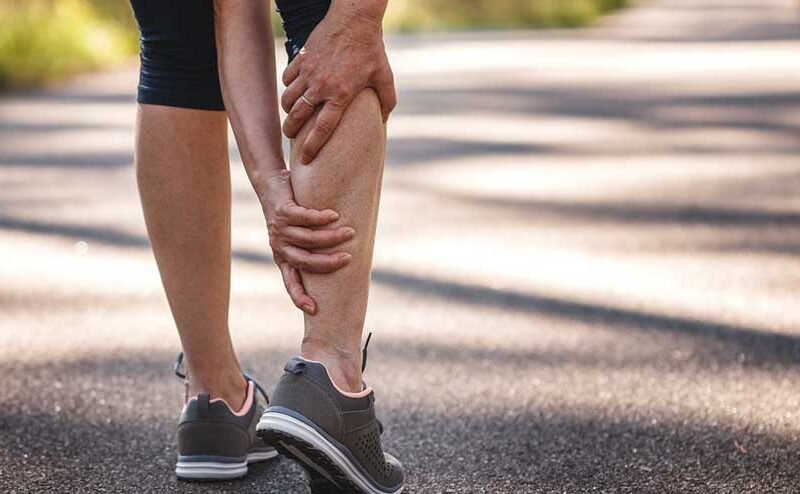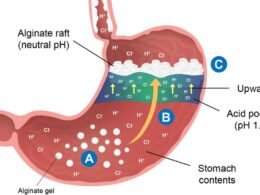Leg cramps can strike without warning, turning a peaceful night or active day into a painful ordeal. These sudden muscle spasms often hit the calves, thighs, or feet, leaving you desperate for relief. While cramps have many causes—dehydration, overexertion, or nutrient deficiencies—prevention is always better than treatment. The right approach can help keep muscles relaxed and functioning smoothly.
Prevents Muscle Spasms
Before finding a solution, it’s important to know what causes leg cramps. Well, muscle spasms occur when fibers contract involuntarily. To stop this, the body needs proper support. A well-formulated solution works by calming overactive nerves and muscles. This reduces the intensity and occurrence of sudden cramps. Addressing the root cause helps muscles stay loose and pain-free.
Spasms can be particularly troublesome for athletes and older adults. Taking proactive steps ensures muscles remain flexible and responsive. Additionally, staying active with gentle exercises can prevent stiffness. Stretching before and after workouts is also crucial. Proper posture during daily activities reduces unnecessary strain. Avoiding excessive caffeine and alcohol can further minimize spasms.
Balances Essential Minerals
When exploring what causes leg cramps, it’s often found that low levels of essential minerals such as magnesium, potassium, and calcium are a frequent underlying factor. These nutrients regulate muscle contractions and nerve signals. Without them, muscles may seize up painfully. Restoring this balance ensures smoother muscle function. It also prevents the mineral shortages that lead to frequent cramping.
Many foods lack sufficient amounts of these vital minerals. Supplementing wisely can make a noticeable difference in muscle health. Eating a diet rich in leafy greens, nuts, and bananas helps maintain mineral levels. Drinking mineral-rich water can also be beneficial. Avoiding processed foods high in sodium is equally important. Regular blood tests can help monitor mineral deficiencies.
Supports Nerve Function
Nerves control muscle movements, sending signals that tell fibers when to tighten or relax. If these signals misfire, cramps can follow. Proper nerve function relies on specific vitamins and minerals. The right blend soothes irritated nerves, helping them communicate clearly with muscles. This lowers the risk of unwanted spasms. Nerve health is often overlooked in cramp prevention.
Maintaining it can prevent many common muscle issues. Foods high in B vitamins, like eggs and whole grains, support nerve health. Reducing stress through meditation or yoga can also help. Avoiding repetitive motions that strain nerves is important. Regular check-ups with a healthcare provider ensure that nerve function remains optimal.
Enhances Hydration Levels
Dehydration thickens blood and reduces electrolyte levels, making cramps more likely. Muscles need fluids to contract and release properly. A targeted approach encourages better hydration by replenishing lost fluids and electrolytes. This keeps muscles supple and less prone to locking up. Many people don’t drink enough water throughout the day.
Proper hydration is a simple yet effective way to avoid cramps. Carrying a water bottle as a reminder to drink helps. Consuming hydrating foods like cucumbers and watermelon is also beneficial. Avoiding sugary drinks that dehydrate the body is key. Monitoring urine color is a good way to check hydration status.
Reduces Cramp Frequency
Regular cramp sufferers know how disruptive they can be. Over time, the right regimen can lessen how often they strike. By tackling multiple causes—mineral loss, nerve stress, dehydration—it offers lasting relief. Fewer cramps mean better sleep and more comfortable movement daily.
Consistency is key when implementing preventive measures. The benefits become more apparent with regular use. Keeping a cramp diary to identify triggers can be helpful. Wearing supportive footwear reduces strain on leg muscles. Gently massaging cramped areas can provide immediate relief. Consulting a doctor for persistent cramps is always advisable.
Promotes Muscle Relaxation
Tense muscles cramp more easily. Natural relaxants ease tightness, allowing fibers to unwind. This is especially helpful after exercise or long periods of sitting. Relaxed muscles recover faster and resist spasms better. The result is less pain and greater flexibility.
Stress and fatigue can exacerbate muscle tension. Managing these factors contributes to overall relaxation. Taking warm baths with Epsom salts can soothe muscles. Practicing deep breathing exercises reduces tension. Using a foam roller helps release tight spots. Getting adequate sleep is essential for muscle recovery.
Boosts Circulation Naturally
Poor blood flow starves muscles of oxygen, leading to cramps. Ingredients that enhance circulation ensure muscles get the nutrients they need. Better blood flow also removes waste products that cause stiffness. This keeps muscles functioning smoothly day and night.
Sedentary lifestyles often contribute to poor circulation. Simple movements and stretches can significantly improve blood flow. Wearing compression garments can aid circulation during long flights. Elevating legs after standing for long periods helps reduce swelling. Regular cardio exercises like walking or cycling boost overall circulation.
It is only by knowing what causes leg cramps can you take care of them with the right preventive steps and ensure the muscles stay relaxed and cramp-free. Addressing hydration, minerals, and nerve health makes a noticeable difference. A proactive approach reduces pain and improves overall comfort. Say goodbye to sudden spasms and enjoy greater freedom of movement.










